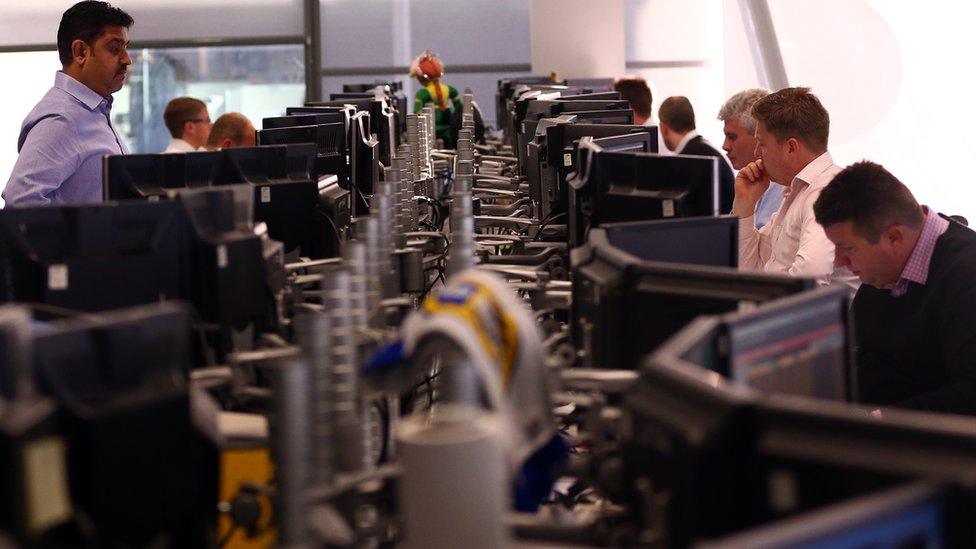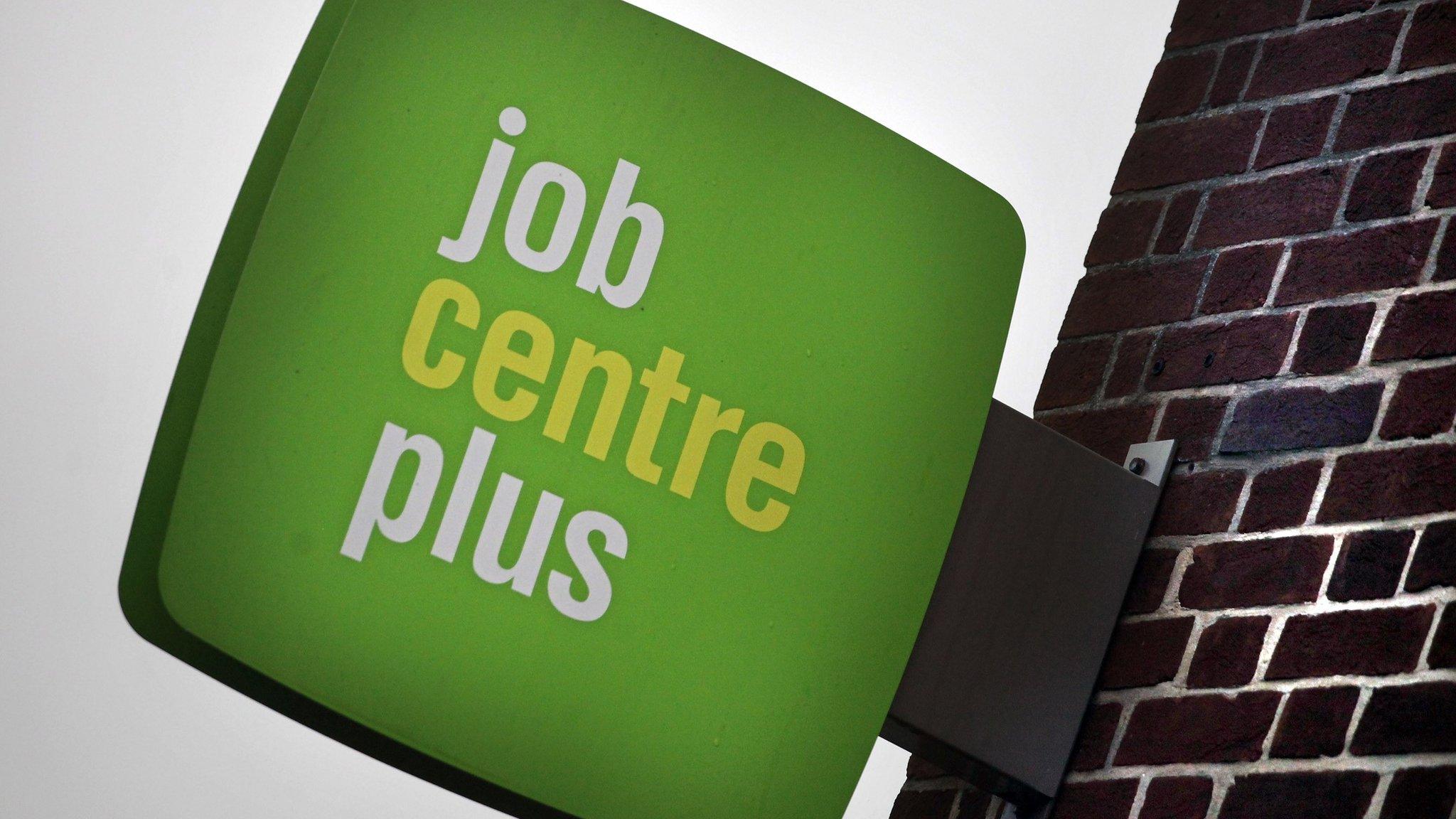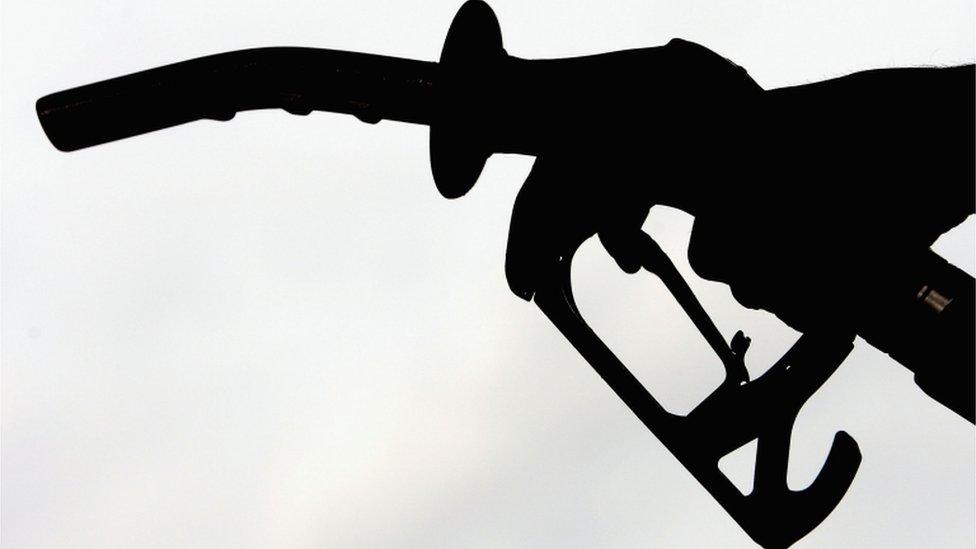UK unemployment rate falls to seven-year low of 5.4%
- Published

The UK unemployment rate fell to a seven-year low of 5.4% in the three months to August, figures have shown.
It was the lowest jobless rate since the second quarter of 2008, the Office for National Statistics said., external
The number of people out of work was 1.77 million between June and August, down 79,000 from the previous quarter.
The number in work rose by 140,000, bringing the employment rate to 73.6% - the highest rate since records began in 1971.
Some 22.77 million people were working full-time in the three months to August, up 291,000 compared with the same period last year.
The number working part-time rose 68,000 to 8.35 million.
Earnings rise
In the three months to August, workers' total earnings, including bonuses, were up 3% from a year earlier - slightly less than expected.
Excluding bonuses, growth in average weekly earnings slowed slightly to 2.8%.
Rising pay is a factor used by the Bank of England in considering when to start raising interest rates.
Wage growth remains weaker than before the financial crisis, but has gathered pace faster than the Bank predicted earlier this year.

However, consumer price inflation in the year to September turned negative once more, according to figures released on Tuesday.
Ruth Miller, UK economist at Capital Economics, said: "There does not seem much need for the MPC to panic about wage growth yet. A [rate] rise before the second quarter of 2016 still seems unlikely in our view."
The CBI said higher productivity "must go hand in hand" with wages growth.
John Hawksworth, chief economist at PwC, said the strong employment figures contrasted with less robust data for retail sales, manufacturing and construction for July and August.
"We'll probably see some slowdown in overall GDP growth in the third quarter, reflecting more uncertain global conditions, but the health of the jobs market continues to underpin the domestic economic recovery," he said.
There was a 4,600 rise in the number claiming jobless benefits to 796,200 in September. However the move to universal credit has made this number more difficult to estimate and, as a result, it has lost is designation as a national statistic.

Analysis: Simon Gompertz, BBC personal finance correspondent
It looks like the basic state pension will go up by about £3.35 a week from next April.
The increase is calculated according the government's triple lock guarantee, which lays down that the pension will be increased by the highest of inflation, earnings or 2.5%.
Wednesday's labour market figures confirm that earnings will give the highest number: on average they rose 2.9% in the reference period, the year to July.
So if George Osborne sticks to the formula, the weekly payment for a pensioner with a full National Insurance record will rise from the current £115.95 a week to £119.30. Means-tested Pension Credit is expected to go up by the same percentage.
Does it mean that pensioners continue to do better under austerity than younger families?
Benefits will not be rising at all next year, so it may look like senior citizens are escaping the squeeze.
On the other hand, the Additional State Pension, also known as State Second Pension or SERPS, will not be increased, nor will Public Service Pensions for teachers, nurses and other state employees.

- Published14 October 2015

- Published13 October 2015
